
Full 2nd Circ. Asked To Rethink Sex Orientation Precedent
May 01, 2017
Author: Vin Gurrieri
Summary
A gay advertising executive asked the full Second Circuit on Friday to revise its precedent that Title VII doesn’t protect against discrimination based on sexual orientation, much like the Seventh Circuit recently did, saying such a ruling is needed to provide much-needed clarity both to lower courts and employers.
Body
A gay advertising executive asked the full Second Circuit on Friday to revise its precedent that Title VII doesn’t protect against discrimination based on sexual orientation, much like the Seventh Circuit recently did, saying such a ruling is needed to provide much-needed clarity both to lower courts and employers.
Matthew Christiansen, an advertising employee at an Omnicom Group Inc. unit asked the Second Circuit to revisit the issue after a three-judge panel in March revived his claims alleging he was harassed at work for failing to fit “male stereotypes,” but not his claims that he was mistreated based on his sexual orientation.
That panel held that Christiansen could pursue his claim that he was harassed for his perceived effeminacy under the U.S. Supreme Court’s decision in Price Waterhouse v. Hopkins, which said discrimination for failure to comport to gender stereotypes is illegal under Title VII. But the court declined to revive Christiansen’s allegations that he was harassed for being gay, citing precedent from a 2000 decision by the Second Circuit known as Simonton v. Runyon that sexual orientation bias is not covered by Title VII.
In Friday’s petition, Christiansen said that reconciling the issue of sexual orientation and the Simonton precedent “would give clarity to this circuit’s courts, eliminate future piecemeal cases on the issue and provide employees and employers guidance regarding what discrimination is prohibited.”
Christiansen said his case “gives this court not one reason, but over 1 million reasons why an en banc panel should answer once and for all whether this circuit will protect sexual orientation under Title VII.”
Christiansen, who is HIV-positive, had initially sued Omnicom unit DDB Worldwide Communications Group Inc. and several individuals in May 2015 alleging he was discriminated against and harassed in violation of Title VII, the Americans with Disabilities Act and other statutes.
In the Second Circuit’s March ruling, Chief Circuit Judge Robert Katzmann issued a concurring opinion in which he suggested that the court’s decision in Simonton and 2005 decision in Dawson v. Bumble & Bumble misunderstood Title VII, detailing three arguments under which sexual orientation discrimination could fall under the statute’s ban on discrimination “based on … sex.”
Judge Katzmann, who sat on the Simonton panel and whose concurrence was co-signed by Judge Margo K. Brodie, said he hoped for an “appropriate occasion” that would allow the Second Circuit or another court to revisit its precedent.
In his brief Friday, Christiansen referred directly to Judge Katzmann’s concurrence, saying that he and Judge Brodie concluded that Simonton “is not good law and that sexual orientation should be protected.”
“Strikingly, support for en banc review comes directly from the Christiansen concurrence,” Christiansen said. “Although historically en banc review is disfavored in this circuit as Chief Judge Katzmann clarified … in Christiansen’s concurrence he took the extraordinary step to urge it.”
Christiansen’s brief also referred to a landmark ruling in early April by the full Seventh Circuit, which tackled the Title VII issue by ruling 8-3 that employers can’t discriminate on the basis of sexual orientation under the statute. The ruling made the Seventh Circuit the first appellate court in the country to set such a precedent.
Christiansen’s brief noted that the Seventh Circuit panel cited Judge Katzmann’s concurrence and its rationale that Title VII does protect sexual orientation. The Seventh Circuit’s ruling also “exposed the deeply flawed reasoning” in the Second Circuit’s precedent and “laid out a principled path” to reexamining Simonton.
“Indeed, [the en banc Seventh Circuit] cited this circuit’s concurrence and used its test that ‘but for’ the sex then the discrimination would not have occurred,” Christiansen said. “En banc review would determine whether this circuit should align itself with the Seventh Circuit that confronted the same issue after this panel’s opinion. Armed with a sister circuit en banc decision using this circuit’s concurrence, en banc review should reconcile Simonton to secure and maintain uniformity in decisions here.”
Susan Chana Lask, counsel for Christiansen, told Law360 that “it’s undeniable that en banc has to be granted” in this case.
An attorney for Omnicom was not available for comment.
Christiansen is represented by Susan Chana Lask of The Law Offices of Susan Chana Lask.
Omnicom is represented by Howard J. Rubin, Shira Franco and Judith Kong of Davis & Gilbert LLP. Christiansen’s supervisor is represented by Rick Ostrove of Leeds Brown Law PC.
The case is Matthew Christiansen v. Omnicom Group Inc., case number 16-748, in the U.S. Court of Appeals for the Second Circuit.
–Additional reporting by Diana Novak Jones and Braden Campbell. Editing by Jack Karp

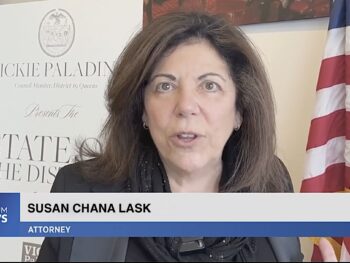
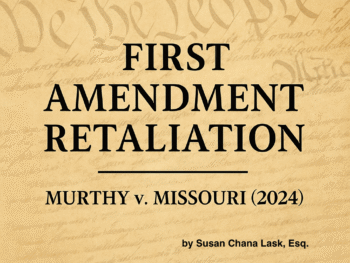
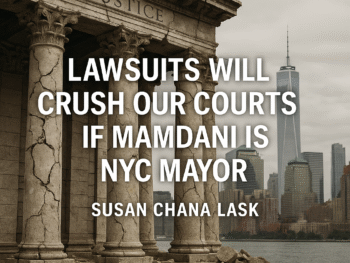
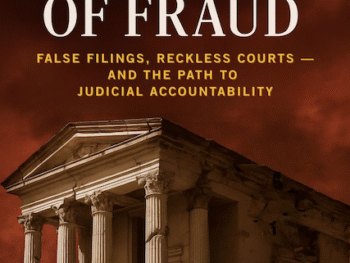
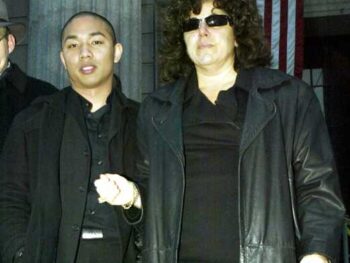




 LAW 360: LASK PREPARES EN BANC REVIEW IN LGBT SEXUAL DISCRIMINATION CASE IN 2D CIRCUIT
LAW 360: LASK PREPARES EN BANC REVIEW IN LGBT SEXUAL DISCRIMINATION CASE IN 2D CIRCUIT